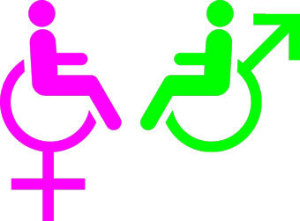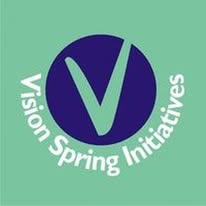In the ever-evolving landscape of human rights, the convergence of challenges faced by marginalized groups often highlights the urgent need for intersectional advocacy. Today, we delve into the intricate connection between the shrinking civic space and the rights of women with disabilities. As we navigate the complex interplay of gender, disability, and civil engagement, it becomes evident that a concerted effort is required to ensure that no one is left behind. As civic space contracts, the ability of women to express their concerns, advocate for their rights, and contribute to policy discussions is curtailed, often leading to disproportionate disadvantages.
- The Invisible Struggles of Women with Disabilities:
Adding another layer to this complex issue is the often-overlooked plight of women with disabilities. Women with disabilities contend with gender-based discrimination and face unique challenges stemming from their disabilities. Their access to education, healthcare, employment, and civic participation is frequently hindered, leaving them disproportionately vulnerable.
- Intersectionality Amplified:
The intersection of shrinking civic space and disability rights magnifies the struggles of women with disabilities. Their voices are marginalized not only due to their gender but also due to societal misconceptions surrounding disabilities. Stereotypes and lack of awareness often result in exclusion from vital discussions that affect their lives.
- Barrier to Advocacy:
For women with disabilities, advocating for their rights becomes an uphill battle. In a shrinking civic space, where even mainstream women’s voices might struggle to be heard, these women grapple with double jeopardy. Their lack of access to physical spaces, digital platforms, and communication tools further compounds their challenges in raising awareness about disability rights.

- Empowerment through Inclusivity:
To combat the dual impact of shrinking civic space and the marginalization of women with disabilities, inclusive initiatives are crucial. Efforts should be made to make spaces and platforms accessible, both physically and digitally. Collaborative networks between disability rights activists, women’s rights advocates, and civil society organizations can amplify the voices of these women and create a united front for change.
Advocacy is only effective when backed by policies that address the needs of women with disabilities within the context of shrinking civic space. Policy changes should guarantee accessible infrastructure, inclusive education, healthcare, and employment opportunities. Moreover, these policies must be informed by the experiences and perspectives of women with disabilities themselves.
2. Policy Reformation:
As a proactive advocate for gender equality and the rights of marginalized groups, Vision Spring Initiatives proposes the following recommendations to address the challenges arising from the intersection of shrinking civic space and disability rights for women:
- Inclusive Spaces: Collaborate with communities, institutions, and organizations to create physically and digitally accessible spaces for women with disabilities, ensuring their active participation in discussions and decision-making processes.
- Capacity Building: Offer training and skill development programs tailored to women with disabilities, equipping them with the tools needed to engage in advocacy, leadership, and community mobilization.
- Awareness Campaigns: Launch campaigns that challenge stereotypes and misconceptions about disability, fostering an environment of understanding and empathy that empowers women with disabilities to speak out.
- Policy Advocacy: Work with policymakers to develop and implement policies that prioritize the rights and needs of women with disabilities, ensuring their voices are heard in the formulation of laws and regulations.
- Collaborative Partnerships: Forge partnerships with disability rights organizations, women’s rights groups, and civil society organizations to pool resources, share knowledge, and create a unified approach to advocating for change.
- Digital Inclusion: Promote digital accessibility by developing online platforms, resources, and campaigns that are designed to accommodate various disabilities, enabling women to participate actively in online discussions.
Conclusion:
The intersection of shrinking civic space and disability rights for women unveils a deeply complex challenge that demands a multi-dimensional approach. As a society, we are responsible for creating an environment where women with disabilities can exercise their agency and contribute to the discourse that shapes their lives. By embracing their voices, addressing their unique needs, and championing their rights, with the support of organizations like Vision Spring Initiatives, we can work towards a future where no one is left behind, regardless of their gender or abilities.
